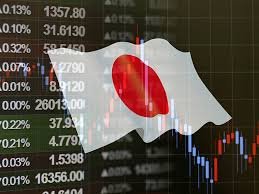The FOMC, or Federal Open Market Committee, is a branch of the United States Federal Reserve System that is responsible for overseeing the nation’s open market operations. This committee plays a crucial role in setting monetary policy for the U.S. economy, which has a significant impact on various aspects of the economy, such as interest rates, inflation, and financial stability.
The FOMC consists of 12 members, including the seven members of the Board of Governors of the Federal Reserve System, the president of the Federal Reserve Bank of New York, and four of the remaining eleven Reserve Bank presidents, who serve one-year terms on a rotating basis. The FOMC meets eight times a year to discuss and assess economic conditions, and make decisions about whether to adjust the federal funds rate or take other policy actions.
The federal funds rate, which is the interest rate at which banks lend reserve balances to other banks overnight, is a key tool used by the FOMC to influence short-term interest rates and maintain the stability of the U.S. financial system. Adjusting the federal funds rate affects the overall economy, including consumer spending, borrowing costs, and investment activity.
When the FOMC adjusts the federal funds rate, it directly influences other short-term interest rates and has a ripple effect throughout the economy. For instance, when the FOMC lowers the federal funds rate, it becomes cheaper for banks to borrow money from each other. As a result, banks can offer lower interest rates on loans to businesses and consumers, which encourages borrowing and spending. This increased economic activity can help stimulate growth and counteract recessions.
Conversely, when the FOMC raises the federal funds rate, it becomes more expensive for banks to borrow money from each other. This leads to higher interest rates on loans, which can discourage borrowing and spending. The FOMC might choose to raise rates to combat inflation, as higher interest rates can help slow down price increases by reducing demand.
In addition to adjusting the federal funds rate, the FOMC can also employ other monetary policy tools to influence the economy, such as open market operations, which involve buying and selling government securities to regulate the money supply. The FOMC may also use forward guidance, which involves communicating its intentions and expectations for future policy actions, to influence financial market expectations.
Overall, the FOMC plays a critical role in shaping the direction of the U.S. economy by implementing monetary policy. Its decisions on interest rates and other policy tools are carefully watched by market participants, as they can have far-reaching consequences for businesses, consumers, and investors.


